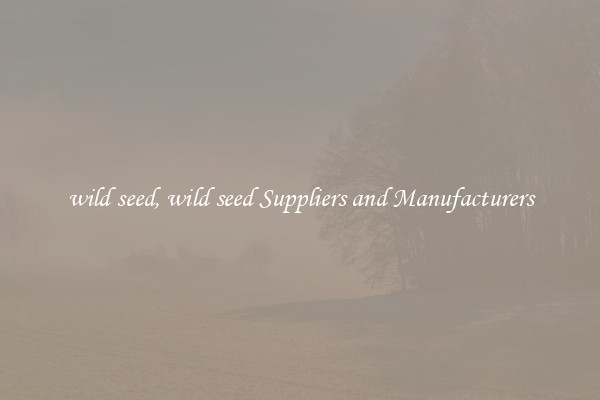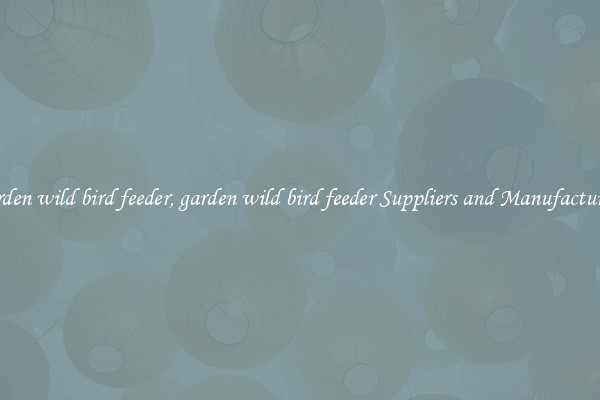wild seed, wild seed Suppliers and Manufacturers
Wild seed is a term used to describe seeds collected from wild plants and flowers. These seeds are highly valuable due to their unique genetic makeup and potential for genetic diversity. They play a crucial role in maintaining the biodiversity of ecosystems and are essential for the survival of many plant species.

Wild seed suppliers and manufacturers are companies or individuals that specialize in collecting, processing, and distributing wild seeds. They work closely with botanists, ecologists, and seed banks to ensure the conservation of plant species and the preservation of their genetic diversity.
One of the main goals of wild seed suppliers and manufacturers is to collect seeds from various plant species and create a diverse gene pool. This diverse gene pool ensures that future generations of plants have the necessary genetic variation to adapt to environmental changes and resist diseases and pests.
These suppliers and manufacturers employ a range of techniques to collect wild seeds. One common method is to monitor wild plant populations and collect seeds when the plants naturally disperse them. This can involve a manual collection process, where seeds are carefully picked by hand, or the use of specialized equipment such as seed traps or nets to collect seeds as they fall from the plants.
Once collected, the seeds go through a series of processes to clean, dry, and store them properly. This ensures that the seeds remain viable and can be used for future planting or conservation efforts. Some wild seed suppliers also test the seeds for quality and viability, ensuring that only the best seeds are distributed to customers.
Wild seed suppliers and manufacturers play a vital role in supporting ecological restoration and the conservation of endangered plant species. They work closely with environmental organizations and government agencies to provide seeds for habitat restoration projects, reforestation efforts, and the creation of native plant gardens.
They also supply seeds to farmers and gardeners who are interested in cultivating native plants or creating more sustainable landscapes. The use of wild seeds in these contexts helps preserve and restore local ecosystems, support pollinators, and reduce the reliance on non-native or genetically modified seeds.
In conclusion, wild seed suppliers and manufacturers play a critical role in the conservation and restoration of plant biodiversity. By collecting and distributing wild seeds, they support genetic diversity and the preservation of endangered plant species. Their efforts ensure that future generations can enjoy the beauty and benefits of wild plants and flowers.

View details

View details

View details

View details








